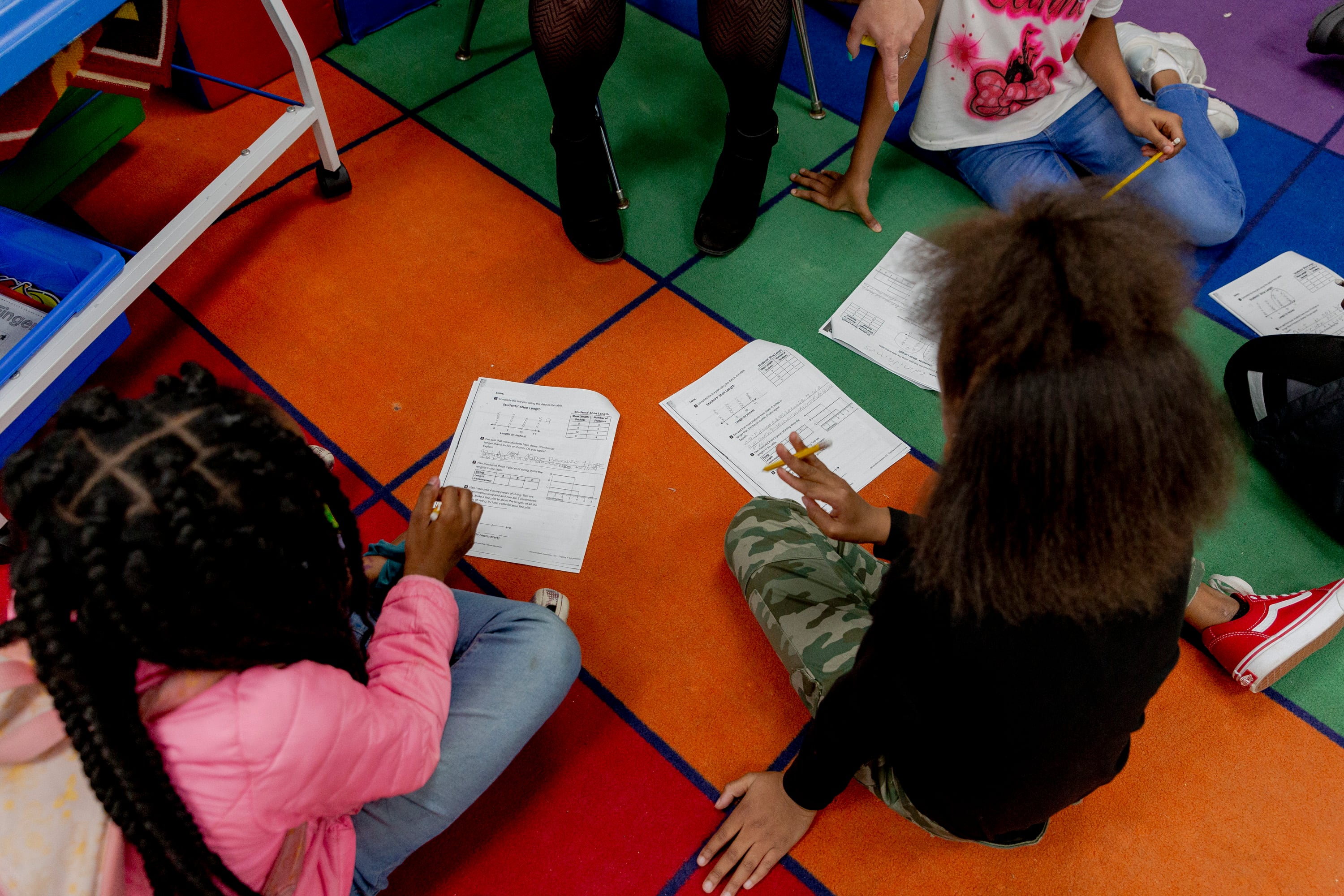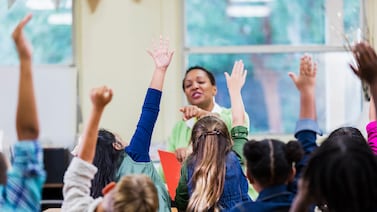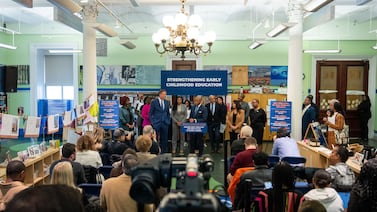Billionaire philanthropist MacKenzie Scott has doled out more than $150 million to public school districts across the country — solidifying a spot among education philanthropy’s heavy-hitters.
“We’re still just trying to wrap our heads around it,” said Melissa Amon, superintendent at Cushing Public Schools, a district that serves roughly 2,000 students in central Oklahoma. “We feel like we just hit the lottery.”
This month, the school district received a $4.5 million donation from Scott, who on Monday released a list of 343 organizations that had received recent gifts. Though she did not disclose individual sums, she said the full amount totaled nearly $2 billion over the past seven months.
Among the organizations were a number of education nonprofits, charter schools, and over a dozen public school districts, including the districts in Chicago and Detroit. In her brief post announcing the list, Scott noted she had selected organizations that were “supporting the voices and opportunities of people from underserved communities.”
The donations won’t make up a significant slice of a school district’s budget. But large, unexpected, and unrestricted donations are rare. School district officials who spoke to Chalkbeat or publicly commented on the donations noted that the money had been given without limitations on its use — allowing the school systems to allocate it however they determined would be most effective.
Melissa Arnold Lyon, an assistant professor at the Rockefeller College of Public Affairs and Policy who has studied education philanthropy, called it a departure from modern conventions.
“The venture philanthropy style, with [expected] returns on investment, often has very tight guidelines and a lot of top-down control over how the money would be spent and what the philanthropist should expect to see as a result,” she said. “A strategy that’s kind of like, ‘Here, I think you’re worthy, and here’s some money, spend it as you need to,’ is much more reminiscent of the older style of philanthropy.”
In Cushing, district officials are looking to use the donation to continue programs that they have been funding with federal COVID relief money — like expanded tutoring, transportation, and after-school programs.
“To be honest, right now, we’re still just trying to completely wrap our brains around getting this money and what it’s going to look like,” Amon added. “We’re sitting down with some of our stakeholders and trying to figure out what other programs might be useful for our kids that we don’t have — looking into additional mental health supports, or even school nurses — things that haven’t even been on our radar up to this point because it just wasn’t financially possible.”
Detroit’s public school district received $20 million, and officials said Tuesday that it will use the funds to help students struggling with reading and math. “This will come with the hiring of more academic interventionists to work with students one on one and in smaller groups,” Superintendent Nikolai Vitti said in a statement.
While not all school districts disclosed the amount of money they had received by Tuesday, contributions to the 10 out of 16 districts that did provide figures totaled at least $159 million.
The large and widespread donations will likely draw attention from other organizations and schools, Lyon added, noting Scott was “definitely making a splash.”
“Other organizations are going to be wanting that money, and they’re going to look at the list and they’re going to try to make some sense of, ‘What do we need to do to get on that list?’” she said.
What other school districts received gifts
In Texas, Killeen Independent School District received $18 million, while Grand Prairie Independent School District received $16 million.
North Carolina’s Durham Public Schools received $18 million. Kentucky’s Jefferson County was gifted $20 million.
Chicago Public Schools received $25 million, while local charter school networks took in an additional $23 million.
In California, Fresno Unified School District received a $20 million gift, while Escondido Union School District received $16 million.
White River School District 47-1 in South Dakota received $1.5 million.
A spokesman for the Cleveland Metropolitan School District in Ohio declined to say how much money the district had received, stating only “We are excited to be selected as a recipient” and that an official announcement was forthcoming.
Tacoma Public Schools in Washington, Lindsay Unified School District in California, Santa Gertrudis and South Texas Independent School Districts in Texas, and Marion County School District in Mississippi also received donations.
The school districts did not immediately respond to Chalkbeat requests for comment.
Lori Higgins contributed reporting.






